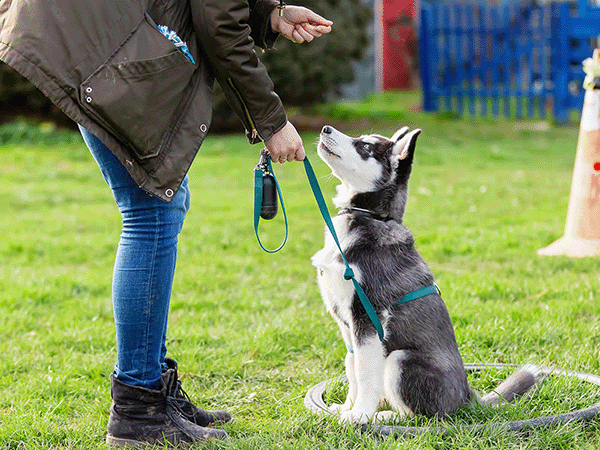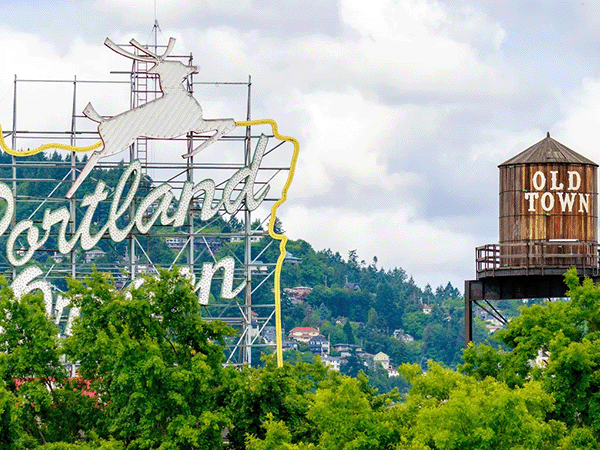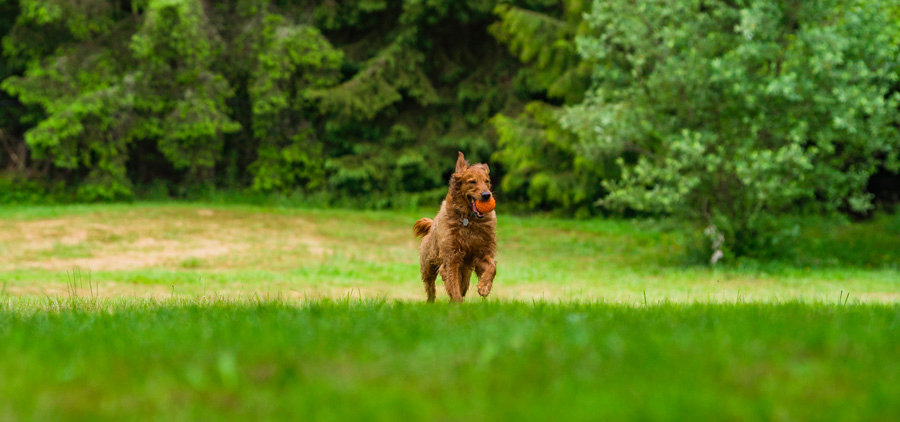Dog Exercise at Home: Fun Indoor Activities

Want to keep your dog active and entertained without leaving your house? You've come to the right place. This article is all about dog exercise at home. Whether you have a tiny apartment or a big backyard, we've got creative games, DIY projects, and training techniques for every dog. Get ready to strengthen your bond and unleash your dog's inner athlete!
If you’re looking to change up your dog’s daily exercise routine, we’ve got you covered.
Here are some of the best ways to exercise your dog both in the comfort of your own home and out in the surrounding world. Get out their excess energy—and most importantly, have some fun together.
How to exercise your dog without leaving the house
There are many reasons you might not be able to get out and about with your dog.
- Maybe you’re working through leash reactivity, so walks at busy times just aren’t possible.
- Maybe you’re dealing with inclement weather—or a particularly cold stretch of winter days.
- Maybe you or your dog is injured.
- Maybe you’re just in a time crunch!
Whatever the reason: Don’t worry. There are countless ways to make sure your dog gets enough exercise even without leaving your house.
Let’s take a look at some of our favorite at-home or “do anywhere” canine indoor exercise activities.
Key Takeaways
- Think beyond walks: Get creative with indoor games like hide-and-seek, puzzle toys, and even DIY agility courses to keep your dog entertained and exercised, rain or shine.
- Safety first, fun always: Match activities to your dog's age and physical condition. Consult your vet before starting anything new, and always supervise your dog during playtime.
- Enrichment is key: Combine physical activity with mental stimulation for a well-rounded approach. Training, puzzle toys, and scent work are great ways to challenge your dog's mind and body.
Flirt pole and tug
One of the best things about fun games like tug-of-war? They can be played in small spaces! Depending on the size of your dog, even most apartments have enough floor space for you to engage in casual indoor games where you compete for possession of a favorite toy.
If you’ve ever heard that tug will cause aggression in your dog, we’re here to alleviate your concern. That’s a myth. Letting your pup engage in their natural canine instincts is actually great for both of you in the long run—and it can even deepen your bond.
To make sure the tug-of-war game stays safe, keep a few quick tips in mind:
- Make sure your dog is excited about the game of tug. Don’t try to take a possession from them while they’re chewing on their own, especially if they have any resource guarding tendencies.
- Create clear signals to start and end the game. This way your dog won’t be confused about when it’s play time and when it isn’t.
- Teach a “drop” or “out” cue. You’ll be able to ask your dog to let go of the toy without any unnecessary conflict.
- When in doubt, work with a professional force-free trainer to improve your play skills. They’ll be happy to help you have more fun with your dog!
Fetch Variations
Fetch is a classic for a reason. It’s simple, fun, and adaptable to different environments—including smaller indoor spaces. Even if you don’t have a long hallway, you can still play fetch with your dog inside. Try rolling a ball or tossing a soft toy across the room.
If your dog is toy-motivated but doesn’t naturally “get” the concept of fetch, you can teach them! Start by rewarding your dog for any interaction with the toy. Then, reward them for picking it up. Gradually increase the distance they have to travel to get the toy, and eventually, they’ll learn to bring it back to you for more play. For inspiration, check out some of the most popular dog names on Sniffspot.
For dogs who already love fetch, try mixing things up with some variations. Hide the toy behind furniture or under blankets and let your dog sniff it out. Or, use a flirt pole to add an extra element of excitement and engagement to the game. If you're looking for a safe, open space for your dog to really stretch their legs, consider visiting one of the dog parks listed on Sniffspot.
Snuffle Mats and Foraging Boxes
Looking for a way to exercise your dog’s mind and body? Snuffle mats and foraging boxes are a great option. These puzzle toys encourage your dog to use their natural scavenging instincts to find hidden treats or kibble.
Snuffle mats are essentially fabric mats with lots of folds and pockets where you can hide treats. Foraging boxes are typically made of cardboard or plastic and have various compartments and flaps that your dog needs to open to get to the goodies. Both types of toys provide mental stimulation and can be a fun way to make mealtime more engaging.
You can find pre-made snuffle mats and foraging boxes at most pet stores, or you can easily make your own. There are tons of DIY tutorials online. Just search for “DIY snuffle mat” or “DIY foraging box” to get started.
Formal Scent Work/Nosework
Formal scent work, also known as K9 nose work, is a dog sport that involves training dogs to find specific scents. While it’s often done outdoors, you can easily adapt scent work activities for indoor fun. This is a great way to provide mental and physical exercise for your dog, especially on days when you can’t get outside for a visit to a dog water park.
Start by introducing your dog to a specific scent, such as birch, anise, or clove. Hide a treat or toy scented with the target odor and encourage your dog to find it. As your dog gets better at finding the scent, you can make the hiding spots more challenging. You can even create a scent work course in your home using boxes, furniture, and other household items.
If you’re interested in learning more about formal scent work, there are many resources available online and in your local community. Look for K9 nose work classes or workshops in your area, or check out online training programs. For more tips on training and enrichment, browse the Sniffspot blog. You can also find listings for private dog parks near you on Sniffspot.
Hide and seek
Hide and seek is especially great light physical exercise—with built-in mental stimulation—for rainy days. It’s a favorite game of many curious dogs.
Here’s how to play hide and seek with your pup:
- Put your dog in a sit or down stay. This is great impulse control practice!
- Go into another room where they can’t see you. You can hide yourself or tuck a favorite toy out of view, depending on how much room you have to work with and what your dog finds most exciting.
- Once you’ve hidden, call your dog.
- Watch as they zoom around your home, using their eyes, ears, and nose to try to find either you or their toy!
- Once they successfully locate the hide, reward them with a favorite treat or game.
- Then play again, switching up your hiding spots to keep them on their toes.
Food searches
A food search is essentially the hide and seek brain game we talked about above—but instead of hiding yourself or a toy, you hide part of your dog’s meal or some favorite treats. This is a super simple nose work game. (Bonus if the food is smelly, so it’s easier for them to find at first.)
DIY Puzzle Toys
Puzzle toys are a fantastic way to make mealtimes more engaging for your dog. Instead of simply gobbling down their kibble, they have to work for it, which adds both mental and physical stimulation to their day. Start with easier puzzles and gradually increase the difficulty as your dog learns. This article from Pupford offers additional ideas on indoor exercises for your dog, including using puzzle toys.
"101 Things to Do with a Box"
A simple cardboard box can provide hours of entertainment for your dog. The MSPCA-Angell suggests using a box and clicker training to encourage interaction and tap into your dog's natural curiosity. Hide treats or toys inside, encourage your dog to paw at it, or even teach them to retrieve the box. Get creative!
"Stuff in a Pail"
Another simple yet effective indoor game is "Stuff in a Pail." Take a dog-safe pail or bucket and fill it with toys, crumpled paper, or even old towels. Let your dog explore and dig through the pail to uncover hidden treasures. The MSPCA-Angell recommends this activity to encourage sniffing and play, providing both mental and physical enrichment.
Puzzle toys for active dogs
Many pet companies sell puzzle toys specifically designed to provide mental and physical enrichment for your dog. You can take a look at our top enrichment toy picks in this article! These are great for moderate exercise.
You can also create DIY puzzle toys with objects you already have around the house. Consider hiding treats in a series of cardboard boxes, or setting up couch cushions to add an extra challenge to your hide and seek games. (More on indoor obstacle courses next.)
Obstacle courses and indoor agility
You’d be surprised at how many ways you can configure your living room to give your dog some novel exercise. Get creative and set up your own indoor agility course! Use things like coffee tables, couch cushions, and chairs to create a path for your dog to follow. Bonus if you have a hula hoop or other fun exercise equipment on hand.
Guide your dog through the course with their favorite treats or toys, and encourage them with lots of praise when they conquer a new obstacle.
Then reconfigure your setup for a new twist!
Setting Up Your Indoor Agility Course
Ready to get started with your very own indoor agility course? It’s easier than you think. Here’s how to set up a course that’s both fun and safe for your dog:
- Start simple. Use household items like chairs, blankets, pillows, and low stools to create your first course. You can drape blankets over chairs to create tunnels, set up a slalom course with pillows, or use stools as low jumps. Remember, safety first! Make sure any jumps are appropriate for your dog’s size and physical capabilities. For more ideas, check out this comprehensive guide to DIY enrichment activities.
- Guide and encourage. At first, you’ll likely need to lure your dog through the course with their favorite treats or a toy. Lots of verbal praise will help keep them engaged and having fun. As they get the hang of it, you can gradually phase out the lures and rely more on verbal cues.
- Increase the challenge. Once your dog is comfortable with the basics, introduce more challenging obstacles. Raise the height of jumps (safely!), create longer tunnels, or add a pause table (a designated spot where your dog needs to sit or lie down before continuing). If you’re looking for inspiration, browse the obstacles at some Sniffspot dog parks.
- Keep it fresh. Dogs thrive on novelty. Reconfigure the course regularly to keep your dog engaged and prevent boredom. Even small changes can make a big difference. Switch the order of obstacles, introduce new items, or change the direction of the course.
- End on a positive note. Always end your agility sessions on a positive note, even if your dog didn’t master every obstacle. Reward them with praise, treats, or a favorite toy. This will help them associate agility with positive experiences and make them enthusiastic for future sessions.
Building an indoor agility course is a fantastic way to provide your dog with physical and mental exercise, especially when you can’t get outside. It’s also a wonderful opportunity to strengthen your bond and have some fun together. So gather your household items, get creative, and let the games begin!
Stair climbing or conditioning activities
If you have a staircase at home, you can give your dog some quick cardio and strength-building exercise by having them walk up and down it. You can do this in multiple fun ways:
- Have your dog sit at the bottom of the staircase. Walk to the top yourself, then call them to you. Reward when they reach you!
- Play a game of fetch up and down the staircase. Make sure you only go for a handful of throws—some dogs will run themselves into the ground for a toy, and you don’t want to cause any injury.
- Practice your dog’s loose-leash walking or heeling skills as you move up and down the staircase together. It’s good exercise for you as the human, too!
You can also teach your dog to walk on a treadmill if you have one. Make sure to take the process slowly and ensure they’re completely comfortable with it. A professional trainer will be able to guide you!
Note: Before starting any canine conditioning, it’s important to get in touch with your vet. A full physical exam will make sure your dog is ready for more intense exercise. Remember that stair work can use up a lot of your pup’s energy.
Treadmill Considerations
If your dog isn’t used to a treadmill, take the introduction process very slowly. Start by simply letting them investigate the machine while it’s turned off. Reward them with treats and praise for any interaction, even if it’s just a sniff.
Once they seem comfortable being near the treadmill, turn it on at the lowest speed. Let them get used to the sound and motion. Continue rewarding them for calm behavior.
Next, with the treadmill still at its lowest setting, lure your dog onto the machine with a treat. Keep the session short and sweet—just a minute or two. Gradually increase the duration as they get more comfortable.
As with any new training, if you’re struggling, a qualified professional dog trainer can help you teach your dog to use the treadmill safely.
Stair Recall Variations
Stair recalls are a fun way to add a new dimension to the classic recall game. Plus, they’re great for building your dog’s rear-end strength and awareness of their body in space. Here are a few variations:
- Simple recall: Have your dog sit or down-stay at the bottom of the stairs. Walk to the top, then call them. Reward them with praise, a treat, or a quick game of tug when they reach you.
- Alternating stairs: Start with your dog at the bottom of the stairs. Toss a toy or treat up a few steps, then call your dog to retrieve it. Once they’ve come back down, toss the reward up a few more steps. Repeat until you reach the top of the staircase.
- Targeted recall: Place a mat or towel at the top of the stairs. Teach your dog to go to their “place” on cue. Then send them to their place at the top of the stairs. This is a great way to combine physical exercise with impulse control and targeting practice.
Remember to keep sessions short, especially when you’re first starting out. End the game before your dog gets tired, and they’ll be more enthusiastic about playing again next time.
Obedience and trick training
Many obedience and “for fun” trick behaviors work your dog’s body along with their brain. Here are a few favorites to get some gentle exercise in!
- Puppy push ups (have your dog quickly switch between their down and sit cue)
- Jumping, perching, or balancing on objects
- Bow or curtsy
- Pivoting on a touchpad
- Sit pretty and similar variations
- Rally signs

Specific Trick Training Examples
Trick training is a fantastic way to give your dog physical exercise and mental stimulation. It's also a great opportunity to strengthen your bond and have some fun together. Here are a few fun and effective tricks you can teach your dog, ranging from simple to more challenging:
- Puppy Push-Ups: Have your dog quickly switch between the “down” and “sit” commands. It’s a great way to work on their obedience while giving them a bit of a workout. Start slowly and gradually increase the speed as your dog learns. This is a great way to burn off some extra energy indoors.
- Jumping, Perching, or Balancing: Encourage your dog to jump over small obstacles (like a rolled-up blanket or a low stool) or balance on objects (like a stable platform or a wide, low beam). This builds physical strength and coordination, and also enhances their focus and body awareness. Always start with easy obstacles and gradually increase the difficulty. Safety first!
- Bow or Curtsy: Teaching your dog to bow or curtsy is a fun party trick and a delightful addition to their repertoire. It's also a good stretch for their front legs and back. Clicker training and positive reinforcement can be particularly helpful for this trick.
- Pivoting on a Touchpad: Teach your dog to pivot on a designated spot (like a small mat or a specific spot on the floor). This can improve their agility, balance, and focus. It's a mentally stimulating activity that also refines their motor skills.
- Sit Pretty: This trick requires your dog to sit up on their hind legs, which strengthens their core muscles and improves balance. It's important to teach this trick gradually to avoid strain. Reward them with praise and treats for even small successes.
- Rally Signs: Incorporate rally signs (visual cues used in dog sports like rally obedience) into your training. This creates a fun, interactive way for your dog to learn various commands while moving through a course. This combines physical activity with mental engagement, making it a well-rounded exercise.
These activities provide gentle exercise and strengthen the bond between you and your dog through positive reinforcement and shared fun.
Other Indoor Activities
Here are a few more ideas for indoor enrichment and exercise. Some of these are more focused on fun and relationship building, while others can burn some serious energy!
Indoor "Walks"
If you have a staircase in your home, consider it your built-in canine gym! Stair climbing is excellent for building strength and getting some cardio in. Even short bursts of going up and down the stairs can tire a dog out surprisingly fast. As with any new exercise, though, it’s a good idea to check with your vet before adding stair climbs to your dog’s routine, especially if they have any joint issues or are a senior. You can find more tips for exercising your dog indoors on Sniffspot.
Doga (Dog Yoga)
Looking for a calming activity you can do with your dog? Doga (dog yoga) might be right up your alley! Gentle stretches and massage can be relaxing and bonding for both you and your dog. There are tons of online resources and videos available to guide you through some simple doga poses. It’s a great way to wind down at the end of a long day.
Bubble Chasing
For a simple, silly game that can get your dog moving, break out the bubbles! Most dogs love chasing and popping bubbles, and it’s a fun way to encourage playful behavior. Just make sure you use dog-safe bubbles—you can find these at most pet stores. PitPat has some other great ideas for indoor exercise, too.
"Floating Dinner Bowl" Game
Want to add a little bit of a challenge to your dog’s mealtime? Try the “floating dinner bowl” game! Instead of putting your dog’s bowl directly on the floor, hold it up and slowly lower it while your dog stays seated. This encourages them to focus and control their impulses, and it adds a little extra physical and mental effort to their meal. The MSPCA has some other fun ideas for indoor games to tire out your dog.
Frozen "Pupcake" Treat Recipe
Looking for a refreshing treat that will also keep your dog entertained? Try making a frozen “pupcake”! Combine kibble, broth (make sure it's safe for dogs), and a bit of cheese in a cake pan, then freeze it for a tasty, cooling treat. Your dog will love working to get all the goodies out of the frozen block. This is a great option for hot days or for dogs who need a little extra help staying cool. Again, the MSPCA is a great resource for this and other boredom-busting activities.
Ways to exercise your dog while out and about
If you are able to get out of the house, here are some go-to ways to exercise your dog in the great big world.
Running, walking, or hiking
There’s a reason “taking the dog for a walk” is a classic daily activity! Neighborhood or park excursions give your pup the opportunity to stretch their legs, explore new scents, and be exposed to common stimuli. For the best exercise, go at your dog’s own pace and let them choose the path if it’s safe. This way they can sniff to their heart’s content!
You can also consider upping the ante by going for a hike on rougher terrain. Make sure your dog is prepared ahead of time. Work up to more intense activity slowly so that you don’t cause injury or excess muscle fatigue.
And if you’re a runner yourself, many dogs will be happy to tag along. Keep in mind that your dog’s legs are shorter than yours and adjust your pace accordingly—and like all exercise, it’s important to keep tabs on your dog’s physical condition. Never force them to keep running if they want to slow down or stop (and remember that you’ll want to refine their loose-leash walk training ahead of time so you don’t get tripped).
Classic games like fetch
Fetch might be the most quintessential dog game. It’s a great cooperative activity for you and your pup to enjoy together! You can switch up the repetitive “bring the toy immediately back” routine in a few fun ways:
- Have your dog perform a few obedience or trick cues before your next throw.
- Ask your dog to wait in a sit or down stay as you throw the toy, then release them to chase after it.
- Run away from your dog after they chase the toy, increasing their excitement to get back to you (it’s a double chase game).
Swimming
Many dogs also love to swim. It’s a particularly great form of exercise for pets who are overweight, aging, or have medical conditions that make high-impact activities difficult.
Before taking your dog into the water:
- Make sure the beach or pool allows dogs. Double check any leash law requirements.
- Consider investing in a canine life jacket. Some dogs are comfortable swimming in shallow water without one, while others really benefit from the added sense of security.
- Check for harmful algae or bacteria. You can usually find a water report on your local county’s website.
Safe Swimming Options for Dogs
Finding safe swimming spots for your dog can be tricky. Luckily, Sniffspot has you covered! Our dog park listings make it easy to search for spots with water features. You can even filter specifically for dog water parks near you. This takes the guesswork out of finding the perfect place for your pup to splash and play.
Beyond Sniffspot, check your local area for dog-friendly beaches, lakes, or swimming pools. Many communities offer designated spaces where dogs can enjoy the water safely. Remember to always prioritize your dog's safety by following the tips mentioned earlier, like checking water quality and using a life vest when needed.
Organized dog sports
Want to take your dog’s exercise regimen even further? Consider participating in organized dog sports! Activities like agility, rally, and even obedience competitions can provide great physical and mental stimulation for your pup.
You can look for a local training facility to try out a few classes or reach out to a professional who offers virtual sessions to get started.
Private dog park
A private dog park, like one of the thousands in Sniffspot’s network of listings, can be a great place to safely exercise your dog. You’ll have the entire area all to yourselves!
Some Sniffspot hosts even provide extra amenities—like agility equipment, maintained trails, durable toys, and more.
Find Private Dog Parks Near You with Sniffspot
If your dog is reactive on leash, struggles with recall, or just prefers to run around off-leash without the distractions of other dogs, a private dog park can be a great option. Sniffspot connects dog owners with private dog parks in their area (and beyond!). You can search by location, amenities (like water features), and even find spots that are fully fenced.
Many Sniffspot hosts offer extra amenities to make your visit even better—think agility equipment, toys, and even waste bags. It’s a convenient way to give your dog a safe and enriching experience.
Some canine exercise considerations
Before embarking on a new physical activity with your dog, there are a few things you should think about ahead of time. You can read more specifics in our dog exercise calculator (how much exercise your individual pup needs) and our comprehensive guide to canine exercise (an overview of everything you need to know).
Here’s the high level:
- Working dogs require more exercise than smaller toy or non-sporting breeds do. These active dogs especially benefit when you change up your activities to keep their brains thinking! (Don’t be afraid to experiment with the above list to work in mental exercise, too.)
- Your dog will need the most exercise when they’re between about two and eight years old. Young puppies should participate in gentler activities to reduce risk of long-term bone and joint problems. Senior dogs should take things more slowly, too, since they no longer recover as quickly.
- If your dog has any medical concerns, make sure to work directly with your veterinarian to create a safe exercise plan.
Training and Exercise Tips
Combining training with exercise can make both activities more enriching. Here are a few tips to keep in mind as you develop your dog’s personalized exercise plan.
Keep Training Sessions Short and Sweet
Whether you’re working on impulse control exercises, obedience cues, or fun tricks, remember that shorter is often better when it comes to dog training. The key is to keep sessions short, fun, and engaging for the dog, avoiding scolding or correction. Aim for sessions lasting just a few minutes, especially when introducing new concepts. As your dog progresses, you can gradually increase the duration, but always prioritize maintaining their enthusiasm and focus. For more tips, check out the MSPCA-Angell’s guide to indoor exercises.
Understanding Your Dog's Body Language
Pay attention to your dog's body language to avoid overexertion. Look for signs of fatigue, such as excessive panting, lagging behind, or seeking shade. If your dog displays any of these signs, it's time to take a break and allow them to rest and recover. PitPat offers helpful advice on recognizing signs of overexertion and provides tips for exercising your dog indoors.
Structured Play for a Happy Pup
Just like with training, create clear signals to start and end playtime. This prevents confusion about when it’s time to play and when it isn’t.
Choosing the Right Treats
Use high-value, low-calorie treats for training and puzzle games. Choose treats that motivate your dog without overfeeding. Pupford's guide on indoor dog exercises provides helpful tips on selecting appropriate treats.
Supervised Playdates for Socialization
If your dog enjoys the company of other dogs, supervised playdates can be a great way to provide exercise and socialization. Ensure safe and proper introductions when dogs interact. Pupford's guide offers valuable insights into safe and enriching playdates.
Tailoring Exercise to Your Dog's Breed
Different breeds have different exercise needs. Working dogs require more exercise than smaller toy or non-sporting breeds. Sniffspot's guide on dog exercise discusses breed-specific exercise requirements.
Adjusting Exercise for Different Life Stages
A dog's exercise needs change throughout their life. Young puppies should participate in gentler activities to reduce the risk of long-term bone and joint problems. Senior dogs should take things more slowly, too, as they don’t recover as quickly. Sniffspot's guide also addresses exercise considerations for different life stages.
Importance of Mental Enrichment
Mental stimulation is as crucial as physical activity for a happy and well-adjusted dog. Puzzle toys, training games, and even simple activities like hide-and-seek can provide valuable mental enrichment. This Pupford guide highlights the importance of mental enrichment for dogs.
Expert Advice: Consult Your Veterinarian
Before significantly changing your dog’s physical activity, consult your veterinarian. They can assess your dog's overall health, identify any potential limitations, and recommend an appropriate exercise plan. Sniffspot's guide on dog exercise emphasizes the importance of consulting with a veterinarian.
Trainer Review of this Article
There is so much misinformation out there, we want to make sure we only provide the highest quality information to our community. We have all of our articles reviewed by qualified, positive-only trainers.
This is the trainer that reviewed this article:
Kelly Hayden, CBCC-KA
Owner & Lead Trainer – Ardent Dog
Certified Separation Anxiety Professional Trainer
Related Articles
- Dog Exercise Calculator: How Much Exercise Your Dog Needs
- Best Ways to Exercise Your Dog at Home and Out in Public
- Dog Parent's Comprehensive Guide to Dog Exercise
- Beginner’s Guide to Dog Sports | Competitions & Activities
- The Best Dog Enrichment Toys
Frequently Asked Questions
How can I exercise my dog indoors if I live in a small apartment? Even in a small space, you can engage your dog in activities like flirt pole, tug, fetch with rolled-up socks or soft toys, hide-and-seek, and scent work. Focus on games that engage their mind as well as their body. Check out the sections on snuffle mats, foraging boxes, and DIY puzzle toys for more ideas.
My dog is a senior. Are there specific exercises I should avoid? Absolutely. While senior dogs still need exercise, it's important to avoid high-impact activities that could strain their joints. Swimming is a great low-impact option, as are shorter, gentler walks and indoor games like hide-and-seek or trick training. Always consult your vet before starting a new exercise program with a senior dog.
What are some signs that my dog is getting enough exercise? A well-exercised dog will be more relaxed, less prone to destructive behaviors, and generally happier. They'll sleep soundly and be more content to chill out with you. If your dog still seems restless, destructive, or anxious, they may need more physical or mental activity.
How can I make walks more enriching for my dog? Let your dog sniff! It's their way of exploring the world. Vary your walking routes to introduce new sights and smells. Occasionally, let your dog choose the path (where safe) to give them a sense of control and adventure. You can also incorporate training into your walks, practicing recall or loose-leash walking.
My dog is reactive on leash. How can I still provide them with enough exercise? Private dog parks can be a great option for reactive dogs, as they offer a safe, enclosed space free from distractions. You can also work on desensitization and counter-conditioning exercises during off-peak hours in less busy areas. Indoor exercise is also key – check out the many options detailed in the blog post for at-home activities. A qualified professional trainer can provide tailored guidance for managing reactivity.
Most recent articles
Related articles
Top dog guides per area
Dog training guides

Dog Food Aggression: Why You Shouldn't Punish It
Does your dog ever growl when you walk by their food dish? Maybe they get possessive of treats, carrying them far away and giving you side-eye when you start to approach — or snarling at your other pets or children if they get too close.

Best Dog Fields in the US: 25+ Wide-Open Spaces for Your Pup to Run Free
The best dog fields in the US offer something that traditional enclosed parks simply can't match: acres of open space where your pup can truly stretch their legs and run at full speed. From Colorado's 470-acre prairie meadows to Tennessee's award-winning "Outback," these wide-open spaces allow dogs to roam, explore, and exercise naturally while engaging instincts that cramped urban parks suppress.

The Ultimate Guide to Scent Training for Dogs
Your dog's nose is an amazing tool. Did you know they have 40 times the olfactory receptors than humans? Scent training for dogs taps into this superpower, turning everyday moments into exciting sniff-fests. It's enriching for all types of dogs – reactive, shy, or simply adventurous. Ready to explore the world of scent work for dogs? Let's get started.

Service Dog Training Costs: DIY vs. Pro
More than 80 million Americans rely on their service dogs to help them navigate the world. Task-trained assistance animals perform a huge range of life-changing—in many cases, life-saving—services: These dogs act as eyes for visually impaired handlers, provide mobility support, alert to seizures and blood sugar crashes, interrupt anxiety attacks, remind their people to take medications, and so much more.

How to Deal With Puppy Potty Training Regression
You thought those dreaded middle-of-the-night potty breaks were over. You were finally free from cleaning up puppy puddles. Then, suddenly, your furry friend starts having accidents again. It's frustrating, right? This puppy potty training regression is more common than you think. Don't worry; we'll help you get your pup back on track. We'll cover the common causes, offer practical solutions, and give you actionable steps to tackle this challenge together.

Dirty Dog Syndrome: Causes, Solutions, and Prevention
It's a cringe-worthy moment every dog owner dreads: your furry friend chowing down on something truly disgusting. If your dog has a penchant for poop, you're dealing with coprophagia. It's more common than you think, and thankfully, often manageable. This article explores the reasons behind dirty dog syndrome, from instinct to learned behavior. We'll also give you practical tips to help break this unpleasant habit.

How to Train Your Rescue Dog: A Complete Guide
* All Sniffspot articles are reviewed by certified trainers for quality, please see bottom of article for details *
Dog enrichment guides

Best Dog Water Parks in the US: 15+ Amazing Splash Destinations for Your Pup
Do you have a water-loving dog looking to burn some energy? There are countless dog parks to visit throughout our country — but some of them become far too hot in the midday sun to be safe for your pets to play. That’s why we’ve put together a list of some of the best dog water parks throughout the United States! At these locations, your pup can frolic, splash, and swim to their heart’s content.

Best Dog Fields in the US: 25+ Wide-Open Spaces for Your Pup to Run Free
The best dog fields in the US offer something that traditional enclosed parks simply can't match: acres of open space where your pup can truly stretch their legs and run at full speed. From Colorado's 470-acre prairie meadows to Tennessee's award-winning "Outback," these wide-open spaces allow dogs to roam, explore, and exercise naturally while engaging instincts that cramped urban parks suppress.

Best Toys for Herding Dogs: Keeping Your Pup Happy & Engaged
Herding dogs are amazing, intelligent companions. But that also means they need more than just a simple game of fetch. Finding the right toys for herding dogs is key to keeping them happy and stimulated. This article explores some of the best toys for herding dogs, including options specifically for breeds like Border Collies and Australian Shepherds. We'll help you discover the perfect herding toys for dogs to tap into their natural instincts and keep them entertained for hours.

Tough Dog Toys for Aggressive Chewers: A Practical Guide
Does your dog destroy every toy you give them? Is your house littered with the remnants of plush toys? Are you tired of wasting money on "indestructible" dog toys for aggressive chewers that don't last? Then this post is for you. We'll cover everything you need to know about finding the best dog toys for aggressive chewers, so you can finally give your pup something safe, durable, and fun.

Daily Exercise Calculator: How Much Exercise Does Your Dog Need?
Everyone knows dogs need exercise, but how much is enough? Walks are great, but creating a truly balanced fitness plan means understanding your dog's specific needs. This post helps you develop a daily exercise calculator for your dog, considering breed, age, and lifestyle. We'll cover fun activities, understanding exercise intensity, and recognizing when your pup has had enough. Let's create a plan that keeps your dog happy and healthy!

Complete Guide To Herding With Dogs
* All Sniffspot articles are reviewed by certified trainers for quality, please see bottom of article for details *

Dog Enrichment Activities: The Ultimate Guide
Ever feel like your dog is restless or bored? They may be getting enough exercise, but still need more. That's where enrichment activities for dogs come in. Giving your dog opportunities to sniff, explore, and problem-solve can make a world of difference. Whether you have a puppy, adult, or senior dog, enriching their environment is key for their well-being. Let's explore how to add cognitive enrichment for dogs, even tailoring activities to your dog's breed with breed specific enrichment and fun enrichment games for dogs.
Dog reactivity guides

Rottweiler Aggression: Truth vs. Myth
Many dogs have gotten a bad reputation over the years for being "dangerous breeds." Rottweilers are among them. Like pit bulls and other large, blocky-headed types of dogs, these powerful and beautiful animals are often assumed to be aggressive.

Best Dog Fields in the US: 25+ Wide-Open Spaces for Your Pup to Run Free
The best dog fields in the US offer something that traditional enclosed parks simply can't match: acres of open space where your pup can truly stretch their legs and run at full speed. From Colorado's 470-acre prairie meadows to Tennessee's award-winning "Outback," these wide-open spaces allow dogs to roam, explore, and exercise naturally while engaging instincts that cramped urban parks suppress.

What Is a Reactive Dog? A Practical Guide for Owners
Does your dog suddenly transform into a barking, lunging Tasmanian devil on walks? It's stressful for both of you. If this sounds familiar, you might have a reactive dog. Understanding what is a reactive dog is the first step to calmer walks. We'll explore the common triggers and give you actionable strategies to manage and modify this behavior. Let's turn those stressful walks into enjoyable outings.

How to Socialize a Reactive Dog: A Step-by-Step Guide
Does your dog display reactivity to other pets or people—barking, lunging, or growling when they see their triggers? Whether they're a rescue still settling in, missed critical socialization as a puppy, or had a negative experience, you're not alone. Reactivity is one of the most common dog behavior concerns, and with the right approach, you can help your reactive dog feel calmer and more confident around their triggers.

What Is a Reactive Dog? A Complete Guide
Is your dog overly excited or fearful around other dogs? Do they bark, lunge, or whine? You might have a reactive dog. Many dog owners face this challenge. Understanding what a reactive dog is is the first step to helping them. This guide explores the common causes of dog reactivity, explains what makes a dog reactive, and offers practical tips and resources. Let's work together to build a stronger bond with your dog and enjoy stress-free walks.

9 Best Online Communities for Reactive Dog Parents
Does your dog's reactivity make walks stressful? You're not alone. Many dog owners face similar challenges. This guide offers practical advice and support for managing reactivity, including finding the best online dog training for reactive dogs. We'll connect you with reactive dog support groups, share training tips, and explore resources like the best dog training app for reactive dogs. Let's build a stronger bond with your dog, together.
* All Sniffspot articles are reviewed by certified trainers for quality, please see bottom of article for details *
How To Groom a Reactive Dog
* All Sniffspot articles are reviewed by certified trainers for quality, please see bottom of article for details *
Sniffspot community guides

The State of Public Dog Parks Across the United States
From 2009 to 2020, there was a 40 percent increase in the development of public dog parks. Designated spots for canine exercise have become commonplace in every major city in North America — many pet owners won’t even consider renting an apartment that doesn’t have its own fenced-in pet area for their canine companions.

Best Dog Fields in the US: 25+ Wide-Open Spaces for Your Pup to Run Free
The best dog fields in the US offer something that traditional enclosed parks simply can't match: acres of open space where your pup can truly stretch their legs and run at full speed. From Colorado's 470-acre prairie meadows to Tennessee's award-winning "Outback," these wide-open spaces allow dogs to roam, explore, and exercise naturally while engaging instincts that cramped urban parks suppress.

How This Family is Affording Their Dream Property Through Renting it Hourly to Dogs
Thousand Oaks, California has been a safe haven for Sniffspot host, Jen, since childhood. Having grown up in busy Santa Barbara, Jen, an introvert from an early age, would seek out solitude and serenity away from tourists attractions and droves of people visiting from elsewhere. “My grandparents own 60 acres about a 30 minute drive from here, and I grew up spending every summer and every holiday visiting them on the ranch,” Jen explained. “In Santa Barbara, we wouldn't go to the beach on the weekend because that's where everybody was, so you'd find places off the beaten path where the tourists weren't. For me, the ranch was just my happy place.”

Host Tips: Ellen K. What Makes Sniffspot Successful for Me
Ellen is the host of Country Pasture Getaway, one of Sniffspot's most popular sniff spots. She has taken the time to write up the lessons she has learned about how to be a great sniff spot host.

How this Oregon Farmer is Making a Business From Renting Her Land to Dogs
Just 20 minutes outside of the busy city of Portland, Oregon, and settled right on the banks of the Columbia River, you’ll find what countless visitors have flocked to the area in search of – mountain views, crisp, clean air, and running water for miles. What you might not expect to find, however, is a hidden oasis designed just for dogs and their people, owned and operated by a farming couple and enjoyed by visitors on two legs, and four.

Host Tips: Fran T. Providing Great Guest Service at our Spot
Fran is the host of Ranch Setting, one of Sniffspot's most popular spots. She has taken the time to write up the lessons she has learned about how to be a great Sniffspot host.

How Sniffspot Helped a Nervous Rescue Work Through His Fears and Change His Family’s Life
This is the story of a family and dog rescuing each other.
Top dog trainers in the US

The Best Dog Trainers in the United States of 2026
This is a list of the top dog trainers in the United States, based on votes from the Sniffspot community and the general public.
The Best Dog Trainers in Seattle, WA of 2026
This is a list of the top dog trainers in Seattle, WA, based on votes from the Sniffspot community and the general public.
The Best Dog Trainers in Portland, OR of 2026
This is a list of the top dog trainers in Portland, OR, based on votes from the Sniffspot community and the general public.
The Best Dog Trainers in Los Angeles, CA of 2026
This is a list of the top dog trainers in Los Angeles, CA, based on votes from the Sniffspot community and the general public.
The Best Dog Trainers in New York, NY of 2026
This is a list of the top dog trainers in New York, NY, based on votes from the Sniffspot community and the general public.
City dog parks guides

Top 10 Indoor Dog Parks: A US Guide
Looking for a space to play with your dog no matter what the weather’s like outside? Look no further than our list of the best indoor dog parks in the United States! These climate-controlled spaces are growing in popularity as pet ownership increases throughout the country. As a bonus, many of them also offer dog training, boarding, grooming, or daycare services on the premises.

Best Dog Fields in the US: 25+ Wide-Open Spaces for Your Pup to Run Free
The best dog fields in the US offer something that traditional enclosed parks simply can't match: acres of open space where your pup can truly stretch their legs and run at full speed. From Colorado's 470-acre prairie meadows to Tennessee's award-winning "Outback," these wide-open spaces allow dogs to roam, explore, and exercise naturally while engaging instincts that cramped urban parks suppress.

Best Dog Parks in the US: Ultimate Guide to Public & Private Off-Leash Adventures
Is your pup giving you those pleading "let me run free" eyes? Whether you're a new dog parent or a seasoned pro looking for fresh adventures, finding the perfect off-leash paradise for your furry friend can feel ruff! From sun-soaked California beaches where your water-loving lab can make a splash to mountain trails in Vermont where your adventure buddy can chase every scent, we've sniffed out the 15 best dog parks across America.

Dog Parks Near Me: Las Vegas Edition
Looking for the perfect dog park near me in Las Vegas? You're in luck! This guide explores all the best options for your pup, from public dog parks to private dog parks near me on Sniffspot. We'll help you find the ideal spot for playtime, socializing, and fresh air. Plus, we'll cover essential etiquette and safety tips to ensure a happy visit for everyone. Get ready for some tail-wagging fun!

Top Sniffspot Locations: Find the Perfect Dog Park
Looking for the perfect dog park? Whether you need a wide-open public space or a private, fenced-in spot, this guide will help you find the best dog parks across the US. We'll cover top-rated public parks, the perks of private dog parks, and even explore Sniffspot locations – giving your pup a safe and fun place to play. Ready to find your dog's new favorite spot? Let's go!

Sniffspot: Portland's Best Private Dog Parks
Ready to discover Portland's best dog parks? Whether you're looking for a public park or the unique experience of a private Sniffspot, this guide has you covered. We'll help you find the perfect spot for your pup, with tips on what to bring, how to prepare, and even understanding dog body language. Plus, we'll explore some top Portland dog parks, including public and Sniffspot options, so you can plan your next dog-friendly adventure in the City of Roses.
Portland Dog Parks: Public & Private Options
This page is about public city dog parks and also includes Sniffspot private dog parks. Sniffspot is the largest network of private dog parks for rent in the world!
Small Dog Park Guide: Tips for Finding the Perfect Spot
Finding the perfect dog park for your small breed can be ruff! Big dog parks can be overwhelming, even dangerous, for little pups. This comprehensive guide helps you sniff out the best small dog parks for your pint-sized companion, covering everything from essential safety checklists to top recommendations for small dog parks across the US—including both public spots and private dog parks.
Dogs breeds

German Shepherd Guide: Best Family Dog? Truth from 9K Owners
The German Shepherd Dog (GSDs) are known for their intelligence, loyalty, and striking appearance. They're also incredibly versatile, excelling as working dogs and devoted family companions. This guide covers everything you need to know about GSDs, from understanding their unique traits and rich history to practical advice on training and care. So, whether you're a seasoned GSD owner or just starting your research, let's explore this remarkable breed together.

Best Dog Fields in the US: 25+ Wide-Open Spaces for Your Pup to Run Free
The best dog fields in the US offer something that traditional enclosed parks simply can't match: acres of open space where your pup can truly stretch their legs and run at full speed. From Colorado's 470-acre prairie meadows to Tennessee's award-winning "Outback," these wide-open spaces allow dogs to roam, explore, and exercise naturally while engaging instincts that cramped urban parks suppress.

Labrador Retriever: America's Best Family Dog? Owner Truth
Discover the Labrador Retriever, a breed celebrated for its playful nature, affectionate temperament, and trainability. Labradors are known for their friendly demeanor and adaptability, making them perfect family companions and versatile working dogs. As one of the most popular types of retrievers, Labs are ideal companions for various lifestyles and are recognized by the American Kennel Club (AKC) as an excellent breed for families.

Golden Retriever Advice: The Complete Owner's Guide
Golden Retrievers: they're gorgeous, playful, and incredibly popular. But before you welcome one into your home, you need the right golden retriever advice. This guide draws on the wisdom of nearly 10,000 Golden Retriever owners, offering practical tips for caring for these affectionate dogs. From understanding their high energy levels to mastering grooming and training, we'll cover everything you need to know. So whether you're already a devoted Golden parent or just starting your research, get ready to learn how to give your furry friend the best possible care.

Are American Staffordshire Terriers Good for First-Time Owners: Complete Guide
Think American Staffordshire Terriers are tough? Think again. While their muscular build might intimidate some, these dogs are known for their playful and loyal personalities. This guide draws on the experience of nearly 10,000 AmStaff owners to reveal the truth about this often misunderstood breed. Want to learn more about caring for an American Staffordshire Terrier? You're in the right place.

Australian Shepherd Facts: Breed Info & Care Guide
Discover the Australian Shepherd, an AKC breed celebrated for its trainable, playful, and affectionate nature. Despite its name, the Australian Shepherd is actually a native breed to the United States, originally developed to breed on farms and ranches. Considered a medium dog, Australian Shepherds were bred for herding beginning in the 1950s. As one of the high-energy breeds, Aussies are known for their boundless energy and need for regular exercise, including aerobic exercise.

Essential Husky Facts for Owners: Breed Guide
Discover the Siberian Husky, a breed celebrated for its curious, intelligent, and loyal nature. Considered a medium-sized dog, Siberian Huskies were originally bred in Russia for sledding, beginning in the early 20th Century. Today, they're one of the most popular active breeds in North America.




























